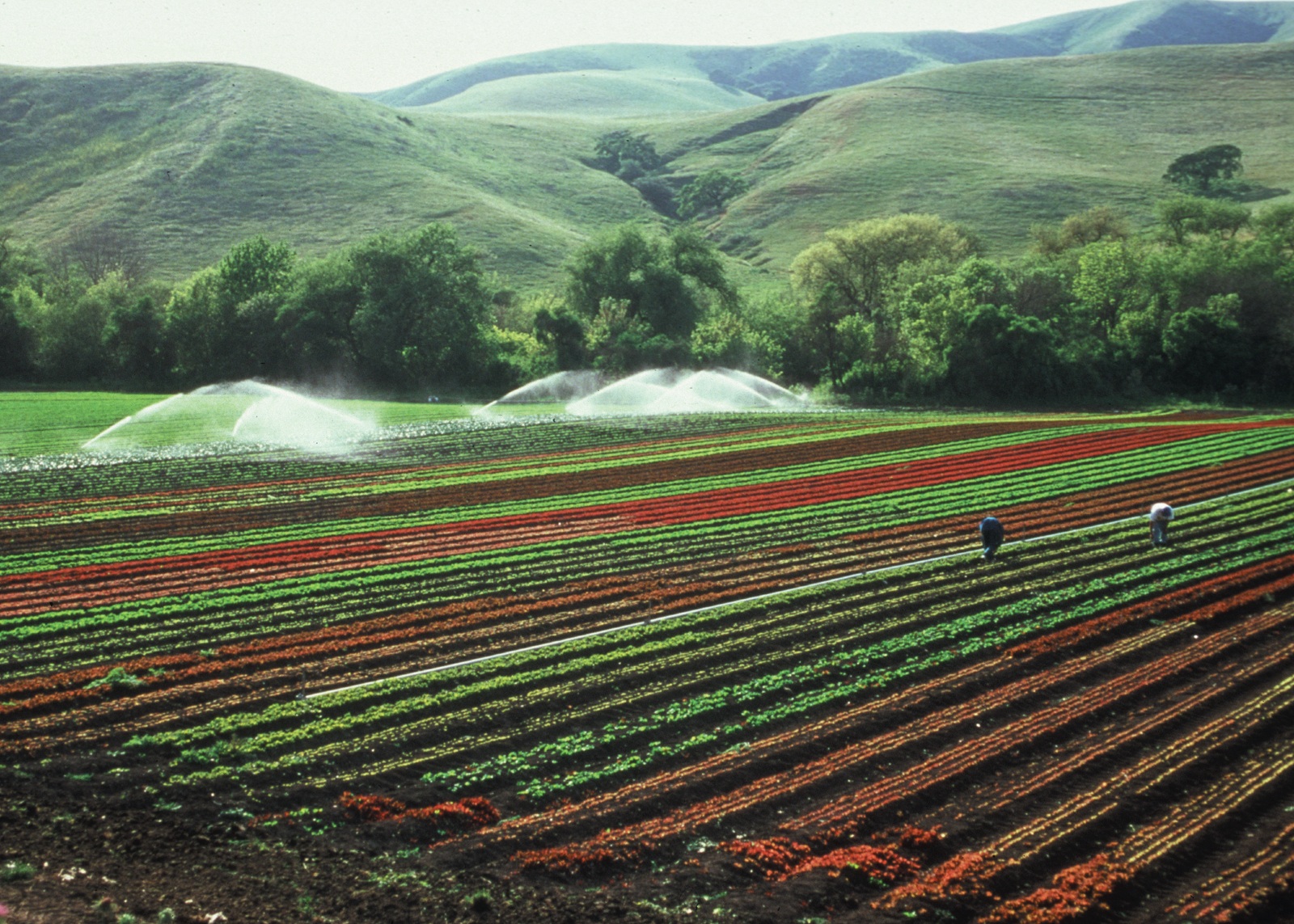Farmland Protection Policy Act
Background
 The National Agricultural Land Study of 1980-81 found that millions of acres of farmland were being converted in the United States each year. The 1981 Congressional report, Compact Cities: Energy-Saving Strategies for the Eighties, identified the need for Congress to implement programs and policies to protect farmland and combat urban sprawl and the waste of energy and resources that accompanies sprawling development.
The National Agricultural Land Study of 1980-81 found that millions of acres of farmland were being converted in the United States each year. The 1981 Congressional report, Compact Cities: Energy-Saving Strategies for the Eighties, identified the need for Congress to implement programs and policies to protect farmland and combat urban sprawl and the waste of energy and resources that accompanies sprawling development.
The Compact Cities report indicated that much of the sprawl was the result of programs funded by the Federal Government. With this in mind, Congress passed the Agriculture and Food Act of 1981 (Public Law 97-98) containing the Farmland Protection Policy Act (FPPA) subtitle I of Title XV, Section 1539-1549. The final rules and regulations were published in the Federal Register on June 17, 1994.
Purpose
The FPPA is intended to minimize the impact Federal programs have on the unnecessary and irreversible conversion of farmland to nonagricultural uses. It assures that to the extent possible federal programs are administered to be compatible with state, local units of government, and private programs and policies to protect farmland. Federal agencies are required to develop and review their policies and procedures to implement the FPPA every two years.
The FPPA does not authorize the Federal Government to regulate the use of private or nonfederal land or, in any way, affect the property rights of owners.
For the purpose of FPPA, farmland includes prime farmland, unique farmland, and land of statewide or local importance. Farmland subject to FPPA requirements does not have to be currently used for cropland. It can be forest land, pastureland, cropland, or other land, but not water or urban built-up land.
Projects and Activities
Projects are subject to FPPA requirements if they may irreversibly convert farmland (directly or indirectly) to nonagricultural use and are completed by a Federal agency or with assistance from a Federal agency.
Assistance from a Federal agency includes:
-
Acquiring or disposing of land.
-
Providing financing or loans.
-
Managing property.
-
Providing technical assistance
Activities that may be subject to FPPA include:
-
State highway construction projects, (through the Federal Highway Administration)
-
Airport expansions
-
Electric cooperative construction projects
-
Railroad construction projects
-
Telephone company construction projects
-
Reservoir and hydroelectric projects
-
Federal agency projects that convert farmland
-
Other projects completed with Federal assistance.
Activities not subject to FPPA include:
-
Federal permitting and licensing
-
Projects planned and completed without the assistance of a Federal agency
-
Projects on land already in urban development or used for water storage
-
Construction within an existing right-of-way purchased on or before August 4, 1984
-
Construction for national defense purposes
-
Construction of on-farm structures needed for farm operations
-
Surface mining, where restoration to agricultural use is planned
-
Construction of new minor secondary structures such as a garage or storage shed.
Farmland Conversion Impact Rating Form
If you represent a Federal agency in a project that has the potential to convert important farmland to non-farm use, please contact your local office of the Natural Resources Conservation Service (NRCS) or USDA Service Center. NRCS uses a land evaluation and site assessment (LESA) system to establish a farmland conversion impact rating score on proposed sites of Federally funded and assisted projects. This score is used as an indicator for the project sponsor to consider alternative sites if the potential adverse impacts on the farmland exceed the recommended allowable level.
The assessment is completed on form AD-1006, Farmland Conversion Impact Rating. The sponsoring agency completes the site assessment portion of the AD-1006, which assesses non-soil related criteria such as the potential for impact on the local agricultural economy if the land is converted to non-farm use and compatibility with existing agricultural use.
Program Contacts
Paul Benedict, National FPPA Manager, 202-720-1824
State FPPA Contacts